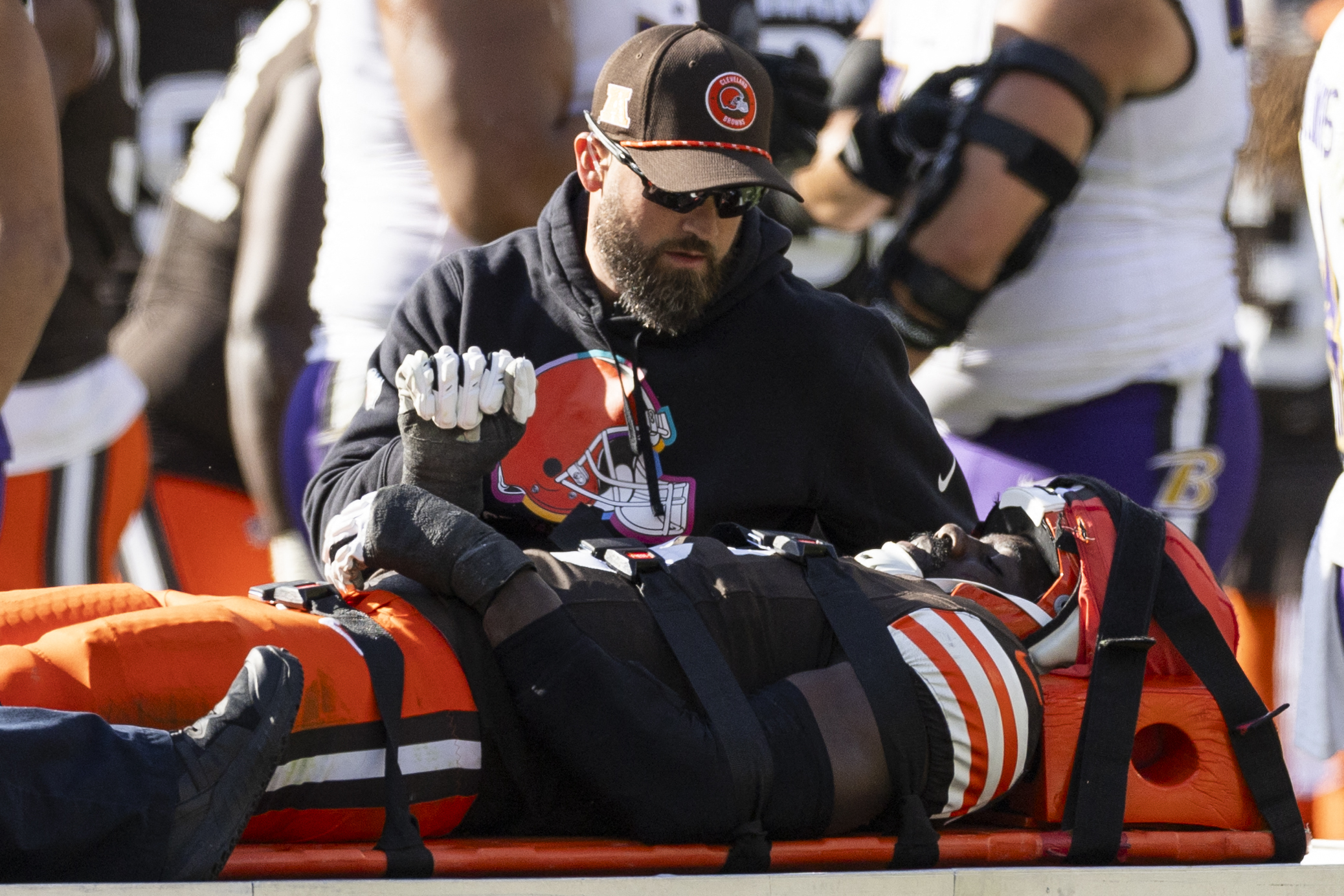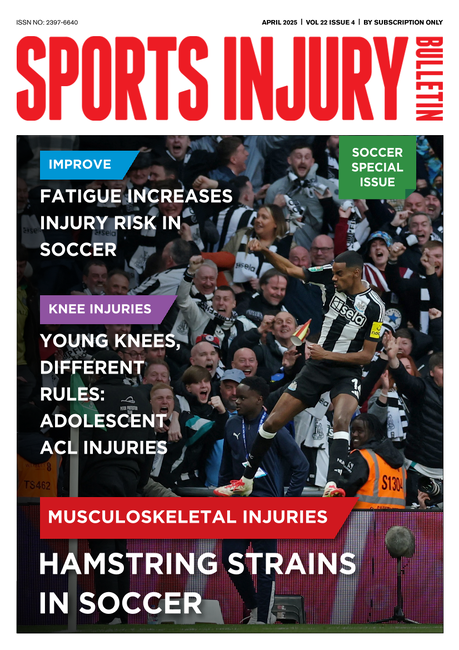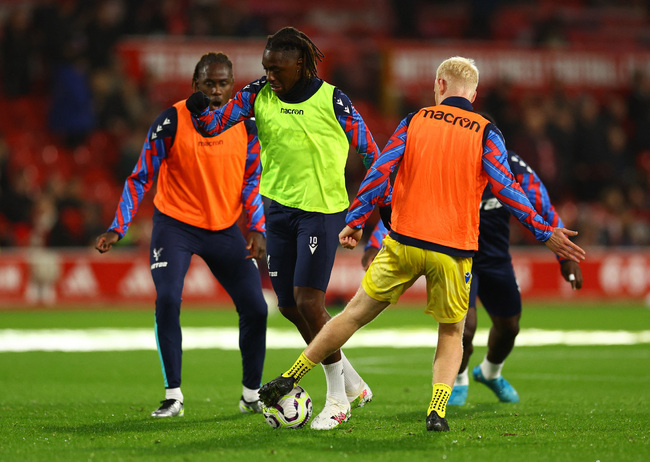You are viewing 1 of your 1 free articles
Behind the Scenes: Unveiling the Mental Health Challenges of Support Staff
Candice MacMillan explores the mental health landscape of support staff, shedding light on their challenges and the importance of addressing their psychological needs to ensure optimal care for athletes and the overall success of sports organizations.
Manchester City’s Alex Greenwood receives medical attention after sustaining an injury Action Images via Reuters/Andrew Boyers
In recent years, the mental health of athletes has garnered significant attention in the sports world. However, an equally important yet often overlooked aspect is the mental well-being of healthcare professionals (HCP) who support these athletes. While the spotlight has rightfully illuminated the psychological challenges faced by competitors, it is crucial to recognize that the support staff working in sports settings also encounter unique stressors and mental health concerns. These individuals, including coaches, team physicians, physiotherapists, athletic trainers, and sports psychologists, play a vital role in maintaining athletes’ physical and mental health. Yet, the demanding nature of their work and the high-pressure competitive sports environment can affect their mental well-being.
Practitioner Mental Health
Mental health symptoms (MHS) are specific experiences or behaviors that may indicate underlying psychological distress, such as feeling sad, anxious, or having difficulty concentrating. Mental health disorders (MHD), on the other hand, are clinically diagnosed conditions that meet specific criteria and significantly impact a person’s thoughts, emotions, and behaviors over an extended period(1). Researchers in South Africa found that 8%-12% of HCPs working during the Tokyo 2020 and Beijing 2022 Paralympic Games reported moderate to severe depressive disorders(2). Exercise physiologists working with individuals, including athletes, experience mental illness and show moderate levels of burnout (60%) and compassion fatigue (30%), which is comparable to other mental health professionals(3). Researchers at the University of Zurich in Switzerland conducted a review that highlights the scarcity of research on elite coaches’ MHD and MHS. However, they do experience symptoms of burnout, anxiety, and depression(4).
“It is crucial to recognize that the HCP working in sports settings also encounter unique stressors and mental health concerns...”
Challenges
Healthcare workers in sports face unique challenges that can significantly impact their mental well-being. The high-pressure environment of competitive sports and the demanding nature of their work create a complex set of stressors. These professionals often deal with tight schedules, long working hours, and the need to make quick decisions that can affect athletes’ careers. The emotional toll of managing athletes’ injuries, rehabilitation, and performance expectations can lead to MHS and MHD. Additionally, the public scrutiny and media attention surrounding high-profile sports events can intensify the pressure on these healthcare workers. The constant travel and irregular work schedules associated with sports seasons can disrupt work-life balance and personal relationships. Furthermore, the responsibility of maintaining athlete confidentiality while navigating team dynamics and organizational pressures can create ethical dilemmas and additional stress. These factors, combined with the need to stay updated with rapidly evolving sports medicine practices, contribute to a challenging work environment that can significantly impact healthcare workers’ mental health.
Performance Influence
The influence of coaches’ and HCPs’ mental health on their athletes is still under investigation, with research focused mainly on the influence of coaches’ stress on coaching performance(4). The mental health of HCPs and coaches can impact their performance and that of their athletes. When they maintain good mental health, they are better equipped to provide effective support, guidance, and care to their athletes. Their emotional stability and resilience can foster a positive training environment, improving athlete performance and well-being. Conversely, poor mental health among HCPs and coaches may result in decreased empathy, communication difficulties, and impaired decision-making, potentially hindering athlete development and performance. Moreover, practitioners experiencing mental health challenges may struggle to manage their stress levels, potentially transferring this stress to their athletes and negatively affecting team dynamics. This interconnected relationship highlights the importance of prioritizing mental health support for practitioners to ensure optimal outcomes for themselves and the athletes under their care.

“Screening tools allow organizations to implement targeted interventions and support strategies for affected individuals.”
Well-being Tools
Screening tools allow organizations to implement targeted interventions and support strategies for affected individuals. Regular screening can help identify early signs of burnout, anxiety, or depression, allowing for timely intervention to prevent escalation. Several tools have been developed to identify, amongst others, the presence and severity of several MHDs and MHSs (see table 1). These tools can allow organizations and teams to identify HCPs with mental health challenges and implement targeted interventions and support strategies for affected individuals.
Table 1: Mental Health Screening Tools
| Tool | Description |
| Patient Health Questionnaire 9-item Depression scale(5) | A self-administered screening tool that assesses the severity of depressive symptoms based on the DSM-IV criteria for major depressive disorder. |
| Generalized Anxiety Disorder 7-item scale(6) | For assessing the severity of generalized anxiety disorder in clinical practice and research settings. |
| Maslach Burnout Inventory-Human Services Survey (MBI-HSS)(7) |
The MBI-HSS addresses three scales:
|
| Oldenburg Burnout Inventory (OLBI)(8) | 16-item scale designed to measure burnout across adults employed in various occupational settings. |
| Sport Mental Health Assessment Tool (SMHAT)(1) | Screening tool designed specifically for assessing mental health symptoms among athletes. It was developed by the International Olympic Committee (IOC) Mental Health Working Group to address the unique mental health challenges faced by athletes. |
| Professional Quality of Life scale(9) | A tool to measure the negative and positive effects of helping others who experience suffering and trauma. |
Conclusion
It is crucial to recognize that HCPs working in sports settings also encounter unique stressors and mental health concerns, and they require targeted interventions and support systems. More research is needed to fully understand the prevalence and impact of mental health conditions and burnout among various types of practitioners in sports settings. To gain a more comprehensive understanding of this topic, it can be beneficial to compare these findings with studies on mental health and burnout in other healthcare specialties and explore potential interventions tailored to the unique needs of sports medicine professionals.
References
- Br J Sports Med. 2021;55(1):30-37.
- Br J Sports Med. 2023;57(21):1382-1387.
- Occup Med. 2020;70(9):633-640.
- Sports Health Multidiscip Approach. 2024;16(6):1050-1057.
- www.apa.org/depression-guideline/patient-health-questionnaire.pdf
- Arch Intern Med. 2006;166(10):1092.
- PLoS ONE. 2014;9(12):e114987. doi:10.1371/journal.pone.0114987.
- doi.apa.org/doi/10.1037/t01688-000.
- doi.apa.org/doi/10.1037/t05192-000.
Newsletter Sign Up
Subscriber Testimonials
Dr. Alexandra Fandetti-Robin, Back & Body Chiropractic
Elspeth Cowell MSCh DpodM SRCh HCPC reg
William Hunter, Nuffield Health
Newsletter Sign Up
Coaches Testimonials
Dr. Alexandra Fandetti-Robin, Back & Body Chiropractic
Elspeth Cowell MSCh DpodM SRCh HCPC reg
William Hunter, Nuffield Health
Be at the leading edge of sports injury management
Our international team of qualified experts (see above) spend hours poring over scores of technical journals and medical papers that even the most interested professionals don't have time to read.
For 17 years, we've helped hard-working physiotherapists and sports professionals like you, overwhelmed by the vast amount of new research, bring science to their treatment. Sports Injury Bulletin is the ideal resource for practitioners too busy to cull through all the monthly journals to find meaningful and applicable studies.
*includes 3 coaching manuals
Get Inspired
All the latest techniques and approaches
Sports Injury Bulletin brings together a worldwide panel of experts – including physiotherapists, doctors, researchers and sports scientists. Together we deliver everything you need to help your clients avoid – or recover as quickly as possible from – injuries.
We strip away the scientific jargon and deliver you easy-to-follow training exercises, nutrition tips, psychological strategies and recovery programmes and exercises in plain English.











